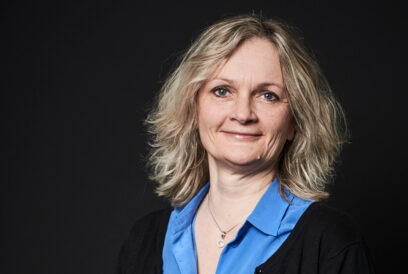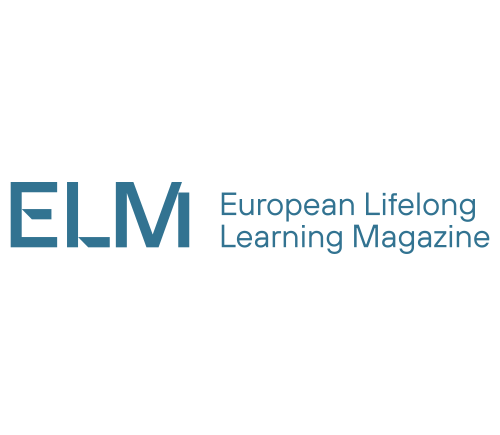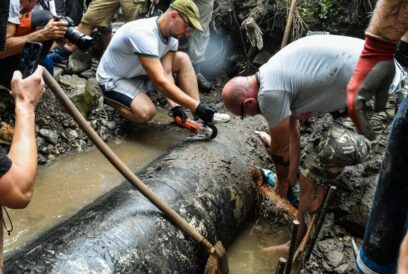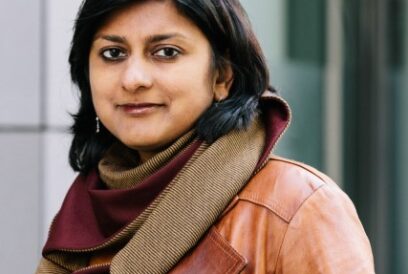

A discourse of “citizenship-as-achievement” affects education for sustainable development. The authors shift the focus from competences that citizens must acquire to democratic educational practices.
Introduction
In 1992, a twelve-year-old girl got the opportunity to give a speech at the UN Conference on Environment and Development in Rio de Janeiro. As the video made of this speech has appeared on YouTube, Severn Suzuki came into the public eye as “the girl who silenced the world for 5 minutes”.
Indeed, she grippingly addressed the assembled world leaders, thereby expressing a deep concern for the state of the planet and global inequality, inciting them to solve sustainability problems urgently and adequately. We start this article about sustainable citizenship and education with an invitation to watch this video as it aptly reflects what we consider to be the dominant image of a contemporary “sustainable” citizen, that is, an active, critical and independent citizen who is willing and able to play an active role in finding solutions to problems and issues connected to sustainable development (see e.g. Jensen & Schnack, 1997; Huckle, 1999, 2008; Jickling & Wals, 2007; Breiting, 2009; Mogensen & Schnack, 2010; Van Poeck & Vandenabeele, 2012).
In this article we will briefly elaborate on how this particular discourse on sustainable citizenship is articulated in research literature and how it affects policymaking in the field of education for sustainable development (ESD). We address the problematic assumptions that go with this conception of education in relation to sustainable citizenship and show how it gives shape to particular ESD practices.
Next, we argue for a different perspective and also present some of our empirical data of multiple case studies that have been conducted in the context of a doctoral research project (Van Poeck, 2013).
A focus on socialisation: why is this a problem?
The above outlined image of a twelve-year-old active citizen who is willing and able to contribute to the realisation of a sustainable society strongly affects ESD policymaking, and practices. Researchers arguing for an ‘action competence approach’ to environmental education and ESD (Jensen & Schnack, 1997; Breiting, 2009; Mogensen & Schnack, 2010) articulate this endeavour as follows:
“[…] one key role for ESD in an action competence approach becomes that of developing the students’ ability, motivation and desire to play an active role in finding democratic solutions to problems and issues connected to sustainable development. The challenge for ESD in this perspective is to identify what kind of learning can qualify the learners’ sound choices in a reality that is often characterised by complexity and uncertainty, and which also motivates them to be active citizens who are able to set the agenda for changes if necessary.” (Mogensen & Schnack, 2010, 68–9)
This conception of ESD, focusing as it does on qualification and fostering particular outcomes, can be connected to what Lawy and Biesta (2006) have called “citizenship-as-achievement”, i.e. the idea that citizenship is a status that individuals can only achieve by moving through a particular learning trajectory. In policy documents on ESD this focus on education as the royal path to the achievement of citizenship competences is omnipresent. For instance, the EU Sustainable Development Strategy denotes education as “a prerequisite for promoting the behavioural changes and providing all citizens with the key competences needed to achieve sustainable development” (Council of the European Union, 2006, 22).
The United Nations Economic Commission for Europe (UNECE) developed a regional Strategy for the current UN Decade of ESD (2005-2014) and also argues for “developing critical thinking and active citizenship” and “engaging learners in active citizenship projects” (UNECE, 2011, 7-9) so as to foster “skills and abilities which underlay good citizenship” (UNECE, 2004, 3), for instance:
“[…] envisioning alternative ways of development and living, evaluating alternative visions, learning how to negotiate and justify choices between visions, and making plans for achieving these, as well as participating in community life to bring such visions into effect.” (UNECE, 2004, 3)
We also examined ESD policymaking in Flanders, the Dutch speaking part of Belgium (see also Van Poeck et al., forthcoming). In a brochure on ESD the Flemish government argues for an “action-oriented” approach to ESD so that participants can “acquire the necessary skills to be able to participate as a citizen in society” (Flemish government, 2011, 21). In Flanders, final objectives (cross curricular as well as subject specific) are adopted by the Parliament and determine which key competences pupils have to achieve through compulsory education. In these final objectives, some of the key competences with regard to sustainable development are defined as follows:
“The pupils:
– participate in environmental policy and environmental performance at school;[…]
– try to find sustainable solutions for the improvement of their local and global environment; […]” (Flemish government 2009, 18 – our translation)
For Biesta (2011), at the core of this “citizenship-as-achievement” view is the assumption that people have to be socialised into “good” (i.c. active, sustainable) citizens. That is, individual learners have to be qualified for the role of active participants in a democratic society through the acquisition of the “proper” knowledge, insights, skills, and attitudes. This conception of education, Biesta argues, is ultimately based on a cluster of knowledge claims: “knowledge about what a good citizen is; knowledge about what a good citizen needs to learn; and knowledge about how individuals can learn to become good citizens” (Biesta, 2011, 142).
In the remainder of this article, we want to show how pinning down sustainable citizenship to a particular standard, i.e. a set of knowledge, attitudes, and skills denies the essentially contested process of becoming a citizen.
Transition Towns
In our research we analysed for example the Transition Towns movement in Flanders (see also Van Poeck, 2013). The aim of the Transition Towns movement is to prepare towns, villages, cities and neighbourhoods for a future affected by climate change and shrinking supplies of cheap energy (peak-oil).
We conducted a document analysis, interviewed 2 volunteers and observed 3 activities. The data (documents and transcriptions of the interviews and observations) have been analysed using the qualitative analysis software QSR NVivo.
The Transition Towns movement arose in Totnes (United Kingdom) where the first Transition Town (TT) has been established in 2006. Since then, the initiative has been reproduced around the world. In Flanders, too, a group of volunteers strives to spread the idea and to facilitate the establishment of local TTs. Up till now, 23 Flemish TT initiatives started up.
An important characteristic of the movement is an emphasis on local communities as the core locus of action. This goes with a strong appeal to and reliance on the capabilities of citizens within these communities.
“The greatest responsibility may not rest with the citizens, but it is probably the lever that offers the greatest chance of bringing about change. Because the, um, political lever, um, doesn’t really work at the moment. Companies are also too defensive of their profits, aren’t they? Um, technology … yes actually most of the problems still exist or are getting worse. So we can’t manage without the citizens, can we? […] So in fact this means there is a great um, yes a possibility that citizens are going to, um, um, help get things started, right? Therefore the belief is that a bottom-up approach is, um, probably the most effective for making this transition possible.” (an interviewed volunteer)
As such, a major role attributed to these citizens is contributing to the transition toward a sustainable society. This transition is not only regarded inevitable due to ecological limits but also considered desirable so as to protect the common good. The following excerpt from a leaflet of the movement shows this reconciliation of the sense of urgency with a positive view on the future.
“The changes we need, to avoid a total collapse are exactly those things that we must undertake to create the world we dream of.”
In the pursuit of the necessary transformation of society, citizens are asked to imagine, develop, and experiment with new solutions for the problems of peak-oil and climate change. So as to support people for this citizenship task, the movement organises a variety of trainings, workshops, lectures, courses, etc. aiming at providing participants with the proper skills and knowledge about “what the problem is and what they can do about it”. All the same, there is a more or less implicit expectation that participants are willing to submit themselves to a number of taken for granted claims, e.g. the movement’s analysis of an inevitable and desirable transition and the assumption that individuals within local communities are able to make this happen.
“There is a, um, you know, a certain openness is important and also a… um, what we actually want to avoid is a… um, what sometimes comes out in these type of discussions is, um, buck passing, isn’t it. Pointing the finger: it’s their fault, it’s their fault. I think it’s an attitude of well, OK, they are mainly responsible but let us also see what we can do, yeah? So perhaps this is a kind of expectation for people to be prepared to consider their contribution to events. Yes.” (an interviewed volunteer)
This expectation serves as a limitation to the involvement of people in TTs as the interviewees explained that the movement mainly reaches a rather homogeneous, congenial audience. These interviewees but also participants we observed mentioned diverse causes for non-participation such as “not being ready for the change yet”, a lack of time, and (too) dissimilar social environments and lifestyles. One interviewee argued that people who don’t want to take part might just disagree with the proposed changes, thus acknowledging that issues such as peak-oil and climate change are entangled with diverse and often irreconcilable values, opinions, interests, and knowledge claims. Indeed, even among those who take part we observed how some local volunteers and participants in the activities enthusiastically promoted the idea of transition as a positive and harmonious story.
Yet, we repeatedly saw others contesting it. For instance, they raised doubts about whether individual and local contributions will suffice to come to grips with peak-oil and climate change and advanced the need for global and structural changes. Furthermore, discussions arose about whether transition is a matter of individuals’ free will or of tackling existing power relations.
The taken for granted consensus narrows down then the space for contestation about a sustainable future, the way to achieve this, and the role of sustainable citizens in this respect. Civic learning is reduced to becoming a member of a particular community which entails (acquiring) the ability to act according to its preconceived norms.
Yet, our analysis shows how this leads to reaching a rather homogeneous audience because of the non-participation of those people who are unwilling or unable to live up to these expectation and how other analyses, strategies, and considerations (e.g. pleas to take into account power relations, proposals for structural changes) are excluded. Foster (2002) also speaks of a Tesco Model of lifelong and lifewide learning of citizens.
“You know how it is with your local Tesco, or any other supermarket – you get used to how everything is laid out, what’s kept on what shelf and how the shelves are sequenced, so that you can structure your shopping list accordingly and steer your trolley round the place as quickly and with as little hassle as possible. Just when you have got this down to a fine art so that you can do it on auto-pilot while thinking about something more interesting, they change it all round in response to some deep and unsearchable marketing imperative, and you have to learn your way around all over again.” (Foster 2002, 36-37)
In contrast, Foster points at the importance of a lifelong and lifewide learning where the standards of sustainability are not only given by experts but arise from what is being realised in various kinds of civil practices. It is a learning which enables citizens to perceive themselves as inhabiting the sense they make, again and again, in full recognition of the contested nature of sustainability. It is learning where citizens are involved as individual beings and where at the same time they are prepared to be taken by surprise by the ways others bring in their point of view. Delimiting citizenship to a pre- and expert-determined standard is particularly problematic in the context of sustainability issues that are pre-eminently open to uncertainty and contestation and characterised by strongly intertwined, often irreconcilable values, interests and knowledge claims.
Beyond preconceived standards for sustainable citizenship
In the remainder of this article, we want to refer to a different perspective on education and sustainable citizenship that is being developed in the research literature. Biesta (2011) speaks of a subjectification conception of civic learning that shifts the focus from the competences that citizens must acquire to the democratic nature of educational spaces and practices. Education, then, is not aimed at the acquisition of particular knowledge, skills, competences, or dispositions but stems from an exposure to and engagement with practices in which democratic citizenship can develop and where public solutions for private troubles are sought and negotiated. It is, thus, no longer about “learning for future citizenship” but rather about “learning from current citizenship”, that is, about “citizenship-as-practice” (Lawy & Biesta 2006).
Evoking questions rather than serving ideology
Below, we present a second Flemish case study of the making of documentary films and elaborate how the educational dynamic emerging within this practice creates a space for a struggle over divergent interpretations of what can be regarded sustainable in face of concrete issues as well as for a variety of images of sustainable citizens.
“‘t Uilekot” describes itself as a “regional centre for action, culture, and youth”. The centre addresses environmental issues in the context of international solidarity and social justice. It runs a café and develops activities in four domains: ecology, international solidarity, culture and youth work. In this article, we focus on the making of films about sustainability issues. The centre made three documentaries: “Climaxi” (about climate change), “Sustainable on Paper” (questioning the “sustainability” of the Forest Stewardship Council – FSC label) and “Fish and Run” (about sustainable fishery). We interviewed the coordinator of the centre and observed 4 activities (film performances annex debate, a political action and a day at the set). The scripts of the documentaries were analysed as documents.
The centre develops educational activities starting from concrete issues rather than general views or abstract subject matters. The concern for real people afflicted by sustainability problems is always the starting point for making a documentary. For instance, when the centre organised a concert, one of the musicians turned out to be a fisherman who used sustainable techniques. He talked about his experience that it was extremely difficult to stand up to the competition with the fleet using common, intensive fishing methods and that he started a petition striving for an inshore three miles zone for sustainable fishery.
This encounter was the trigger for making “Fish and Run”, starting from the very particular concern of the fisherman, examining it further, and complementing, refuting, and adjusting it by other points of view. The making of the film thus became a quest for possible solutions that can ensure a sustainable future for the fish as well as the fishermen.
In doing so, the aim is to arouse interest in the issue at stake and to evoke questions rather than to provide answers.
“Kind of deliberately, we choose from the start not to offer solutions. ‘Cause, because we… always are a group that wants to ask questions, right, people have to think themselves and decide what they… We won’t serve ideology… or solutions. And for a lot of people currently, in comparison with twenty years ago, it’s not easy anymore. And they said… well, I thought I would get the solutions, and now I have even more questions than before… But I think, I think it’s good. So if you can make people think and ask questions, then it’s okay.” (the interviewed coordinator)
Sustainability problems, then, are no longer a matter of implementing a particular solution but emerge as issues in which a multitude of opinions, values, knowledge claims, interests, etc. are caught up. During the activities we observed that plenty of time was devoted for in-depth discussions. Divergent points of view were elaborated and clarified, participants frequently objected to each other’s opinions and they were given the opportunity to ask questions and / or to answer them extensively, to challenge others to clarify, refine, or revise their arguments as well as to call people to account regarding the consequences of their own opinions or behaviour.
During the interview, the coordinator expressed an understanding of ESD as a practice of gathering people around an issue and inciting them to act and to play their part as citizens. The centre’s activities provided a variety of opportunities to enact citizenship: e.g. by offering diverse people the space to voice their concern or point of view in a documentary of a debate, by gathering people in political actions, or by evoking questions that incite them to think for themselves. The enactment of citizenship, here, is not delimited by standards defining what a sustainable citizen is or what expectations (s)he should live up to. For instance, in “Climaxi” a boy from a poor family is interviewed about climate change.
“There are so many things I’d like to say, but I don’t… If the government doesn’t help us to overcome poverty, I’m very worried about our future. We are in a lot of misery. To get out of it, we need help. The government should help us to find a job and a house. Our problems worsen because of the economic crisis. We are really poor. That’s why we have to fight. Fight, all round the world, in every country. When I see documentaries on Africa, I lose all hope. I shouldn’t do that. We may be poor, but we help each other. I’m willing to sacrifice myself to help the poor. I’m worried about it. Furthermore, the time bomb of our planet is ticking louder and louder as the ozone layer is devastated. I don’t want to frighten people, but we may expect the ruin of our world soon. We have to prepare quickly. If we continue driving cars and consume all kind of things, if we keep on polluting the Earth, we won’t be able to find a way out.” (boy interviewed in “Climaxi”)
He gets the opportunity – the time and space – to voice his thoughts and concerns without any prior diagnosis (nor preparation) as to the “necessary” competences (e.g. eloquence – he stammers and mumbles), the “proper” setting (the interview is filmed in the family’s ordinary living room where other people are walking in and out), or the existence of interest and motivation (as the excerpt shows, he expresses deep concerns about the issue whereas the next scene pointedly shows a social worker explaining that the people in this poor neighbourhood are not occupied with climate change since they have other, more urgent concerns).
Conclusion
The above described scene of what we could call a “sustainable citizen-in-practice” sharply contrasts with the video of Severn Suzuki, a performance of citizenship-as-achievement. The boy did not “silence the world” with his speech – unfortunately not available on YouTube. We present him here so as to draw attention to another image of a sustainable citizen and to an understanding of education which is different from the prevailing socialisation conception. Socialisation always involves a “knowing” position on the part of the educator. Yet, the specific nature of sustainability issues rather challenges the unbridled legitimacy of existing knowledge, expertise, and routines. In our analysis of the making of documentaries we showed how these issues can serve as a starting point for educational practices in which the actors involved share a lack of knowledge and, thus, uncertainty as to handle sustainability. Education then emerges as a space in which people are invited and encouraged to explore an issue and to respond to each other’s divergent and mutually exclusive concerns, a space in which things are made public: this “is not just about making things known (as ‘matters of fact’), but about making them present (as ‘matters of concern’)” (Masschelein & Simons 2009, 237).
Read more:
How could adult education better address the causes and not just the symptoms of socio-ecological crises?
References
Biesta, G. (2011). Learning in Public Places: Civic Learning for the 21st Century. Inaugural Lecture on the Occasion of the Award of the International Francqui Professorship, Ghent, 17th February 2011.
Breiting, S.( 2009). Issues for environmental education and ESD research development: looking ahead from WEEC 2007 in Durban. Environmental Education Research, 15(2), 199-207.
Council of the European Union (2006). Review of the EU Sustainable Development Strategy, Brussels, 26 June 2006
Flemish government. (2009). New cross-curricular final objectives for secundary education [VOET@2010. Nieuwe vakoverschrijdende eindtermen voor het secundair onderwijs] Brussels: Flemish government.
Flemish government. (2011). Education for Sustainable Development: flag and cargo. Brussels: Flemish government.
Foster, J. (2002) Sustainability, higher education and the learning society. Environmental Education Research, 8(1), 35-41.
Huckle, J. (1999). Locating Environmental Education Between Modern Capitalism and Postmodern Socialism: A Reply to Lucie Sauvé. Canadian Journal of Environmental Education, 4(1), 36-45.
Huckle, J. (2008). Sustainable Development. In J. Arthur, I. Davies & C. Hahn (Eds.). The Sage Handbook of Education for Citizenship and Democracy (342-354). London: Sage Publications.
Jensen, B. B. & Schnack, K. (1997). The Action Competence Approach in Environmental Education. Environmental Education Research, 3(2), 163-178.
Jickling, B. & Wals, A.E.J. (2007). Globalization and environmental education: looking beyond sustainable development. Journal of Curriculum Studies, 40(1), 1-21.
Lawy, R. & Biesta, G. (2006). Citizenship-as-practice: The educational implications of an inclusive and relational understanding of citizenship. British Journal of Educational Studies, 54(1), 34-50.
Masschelein, J. & Simons, M. (2009). From Active Citizenship to World Citizenship: a proposal for a world university. European Educational Research Journal, 8(2), 236-248.
Mogensen, F. & Schnack, K. (2010). The action competence approach and the ‘new’ discourses of education for sustainable development, competence and quality criteria. Environmental Education Research, 16(2), 59-74.
UNECE (2004). Second regional meeting on education for sustainable development. Draft UNECE Strategy for education for sustainable development, Addendum: Background, Rome, 15-16 July 2004.
UNECE (2011). Steering Committee on Education for Sustainable Development. Learning for the future: Competences in Education for Sustainable Development. Geneva, 7-8 April 2011.
Van Poeck, K. (2013). Education as a response to sustainability issues. Practices of environmental education in the context of the United Nations Decade of education for sustainable development. PhD diss., University of Leuven.
Van Poeck, K. & Vandenabeele, J. (2012). Learning from sustainable development: education in the light of public issues. Environmental Education Research, 18(4), 541-552.
Van Poeck, K., Bruyninckx, H. and J. Vandenabeele. (Submitted). Taking stock of the UN Decade of Education for Sustainable Development: The policymaking process in Flanders. Environmental Education Research.





